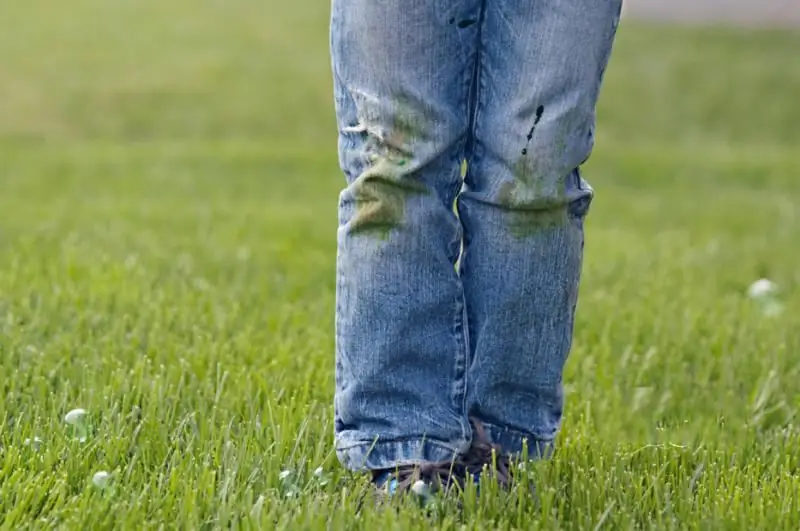
Table of contents:
- Author Bailey Albertson [email protected].
- Public 2023-12-17 12:53.
- Last modified 2025-01-23 12:41.
Go for groceries and not get infected: rules of conduct in supermarkets

Even outside the body of the carrier, particles of the virus can live up to 2-3 days, so a simple trip to the store can cause infection with the coronavirus. To avoid this, when leaving the house, wear gloves and a mask. Next, we will figure out what else you need to do in order not to get sick while going to the supermarket.
Only when necessary
The best way to protect yourself from the coronavirus is to stay at home. Therefore, make a list of groceries and other essential items in advance so that you do not have to leave the house again for something you need in a couple of days.
If you've already thought about shopping for groceries online, now is the time to try it. Moreover, many large stores, such as Auchan or Perekrestok, have their own delivery services. You just have to place an order on the supermarket's website and wait for the courier.
Best time and place
The fewer customers in the store, the less chance of getting sick. Therefore, it is better to leave the house at a time when there are fewer passers-by on the streets, for example, early in the morning, when the store opens.
You also need to choose the right day of the week. Many people continue to go to work, which makes the streets less crowded on weekdays than, for example, on weekends or on Friday nights.
Alone
Going for groceries without relatives is much safer for both your family and those around you. If it suddenly turns out that you have already become a carrier of the virus, then going out on the street alone, you risk infecting fewer people than in the company of someone close to you.
In addition, it is much more convenient if someone who will help you to neatly unpack and disinfect all purchases is already waiting for you at home.
Keep your distance
To minimize the risk of infection, try not to approach other customers closer than 1-1.5 meters. You also need to keep your distance in the queue, especially since most stores have long ago made special markings near the ticket offices.
But don't panic. Even if you get too close to someone with a coronavirus, there is no 100% guarantee that it will lead to infection.
Don't touch what you're not going to buy
In a supermarket, where food is on public shelves, the risk of infection is much higher than ordering the necessary goods through a delivery service. Therefore, if you come to a regular store, try not to touch what you are not going to buy.
Also, you need to pay special attention to loose goods. At home, such purchases should be thoroughly washed with soap or sanitized.
Map is good, but phone is better
If you pay for purchases with a bank card, then you will have to enter a pin code, which means touch the terminal buttons, which may also contain virus particles. The best solution in this situation would be to use a smartphone with the NFC function, which allows contactless payment.
It is also worth refusing to use cash. But, if you have to do this, do not touch your face and try to wash your hands or clean them with a sanitizer as soon as possible.
What is important to do at home
Disassemble the package in which you brought your purchases home right in the hallway. Unpack all products or treat their surfaces with a disinfectant. Fruits and vegetables can be washed with soap, following the same rules as for hand washing. That is, you need to soap the products for at least 20-30 seconds.
After you process your purchases and dispose of the packaging, be sure to wipe all used surfaces with a sanitizer and be sure to wash your hands with soap and water.
In practice, following these rules can be very tedious. Therefore, if at some point you want to abandon them, remember that you care not only about yourself, but also about the safety of your loved ones and all the people around you.
Recommended:
How To Get Rid Of Rats In A Private House, Chicken Coop, Apartment And Other Premises - Using Various Methods To Get Rid Of Rodents

Reasons for the appearance of rats in the house. What methods, means to use in the fight against rats in various residential and non-residential premises. Preventive actions. Video
What To Do If, After Flashing Android, The Phone Or Tablet Does Not Turn On, Does Not See The Network, Does Not Charge

Why does my smartphone or tablet not work after changing the Android version. How to troubleshoot various problems. How to properly reflash a device
How And How To Get Grass Off Your Jeans: Different Ways To Quickly Get Rid Of Stains At Home

How to quickly get rid of grass stains on jeans? Machine washable rules, as well as 9 effective life hacks to remove fresh and old traces of grass
What Minced Meat Can You Buy In Supermarkets

What results did Roskontrol's check of popular brands of minced meat in stores give?
6 Rules To Follow To Get People To Reach For You

How to learn to attract people to yourself even in adulthood
